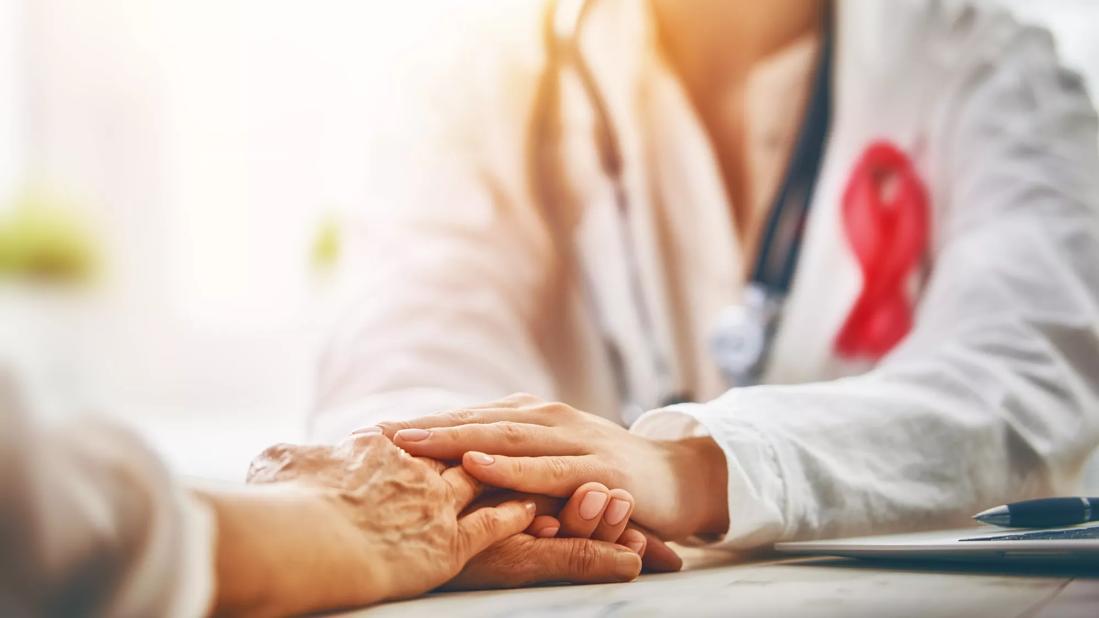New research weighs chemotherapy risk vs. benefits

Image content: This image is available to view online.
View image online (https://assets.clevelandclinic.org/transform/5f6efbba-ba30-4f04-aeda-69d07d77fb8a/GettyImages-860884178_jpg)
Many Women Can Skip Chemo for Early-Stage Breast Cancer
A large breast cancer study has confirmed what doctors in recent years have suspected: Thousands of women with a common type of early-stage breast cancer will no longer need to undergo chemotherapy after surgery.
Advertisement
Cleveland Clinic is a non-profit academic medical center. Advertising on our site helps support our mission. We do not endorse non-Cleveland Clinic products or services. Policy
The New England Journal of Medicine recently published results of the National Cancer Institute study involving more than 10,000 women with hormone-receptor-positive, HER2-negative breast cancer. The study found that postmenopausal women with a low to middle risk of recurrence score, as determined by a common genomic test (Oncotype DX), only needed anti-estrogen therapy after surgery.
“This means a large number of patients can safely avoid chemotherapy. That’s a huge advantage,” says oncologist Jame Abraham, MD, Director of Cleveland Clinic’s Breast Oncology Program.
In treating breast cancer, doctors typically have given chemotherapy after a lumpectomy or mastectomy. Known as adjuvant treatment, this is meant to help reduce the chance of recurrence.
When patients receive it after surgery, the chemotherapy treatment typically lasts from three to six months, depending on what type of drugs doctors use.
“But chemotherapy comes with a lot of side effects, both short-term and long-term,” Dr. Abraham says.
Common temporary side effects include:
Doctors sometimes have to hospitalize patients to get these problems under control. “Chemo is not easy; it’s not fun,” Dr. Abraham says.
Advertisement
For this major study, researchers enrolled women ages 18 to 75 with hormone-receptor positive, HER-2 negative breast cancer. Doctors used a genomic test (Oncotype DX) that looks at 21 genes to determine each woman’s risk of recurrence on a scale of 0 to 100.
Doctors have been using the test for about 10 years. In general, a recurrence score of less than 18 is considered low, and a recurrence score higher than 31 is considered high. Typically, patients with a recurrence score of less than 18 are treated only with endocrine therapy, and those with scores higher than 31 receive both chemotherapy and endocrine therapy.
However, for this study, researchers considered recurrence score numbers less than 11 as low (and limited treatment to anti-estrogen therapy), while they treated anyone with a score higher than 25 with chemotherapy.
In particular, the study researchers wanted to better understand the role of chemotherapy in patients in the middle range (with scores of 11-25); these were considered as the intermediate risk group.
The recent study results resolved questions about the role of chemotherapy in patients with a scores of 11-25, Dr. Abraham says. After nine years, women who fell in this range, who had only received hormone therapy, had a similar rate of cancer-free survival as women who received both chemotherapy and hormone therapy.
“Also, post-menopausal patients can safely avoid chemotherapy if they have a number less than 25,” Dr. Abraham says.
The only exception is for women who are pre-menopausal or age 50 or younger. The study recommends that doctors evaluate the benefit of chemotherapy for these women who fall in the 16 to 25 recurrence score range.
The recent study results are one more step toward helping doctors and patients practice personalized healthcare, Dr. Abraham says. “We can really individualize treatment and make sure we are prescribing the right treatment for the right purpose.”
Advertisement

Delivered every Tuesday!
Sign up for our Health Essentials emails for expert guidance on nutrition, fitness, sleep, skin care and more
It's a letter about the news!
Learn more about our editorial process.
Advertisement
The answer is yes — but there are things you can do to help boost your energy
Physical activity and weight management can minimize your chances of getting the disease
Research consistently shows that soy-based foods do not increase cancer risk
What a nice subtitle we've got here!
Lumps may move and you may feel pain, but breast discharge typically isn’t a sign of cancer
Being informed can help you feel more confident about your care decisions
Metastatic breast cancer can spread anywhere in your body
Opt for fruits and vegetables, whole grains and lean protein to stay healthy
Type 2 diabetes isn’t inevitable with these dietary changes
Applying a hot or cold compress can help with pain
Pump up your iron intake with foods like tuna, tofu and turkey